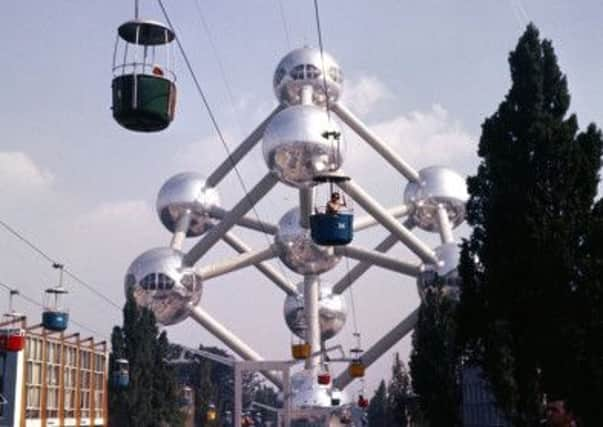Book review: Expo 58 by Jonathan Coe


Expo 58 by Jonathan Coe
Viking, £16.99
There’s a peculiar mix of tones in Jonathan Coe’s fiction, which accounts both for their appeal when they’re strong and for their failings when they fail. His thing is to cut an atmosphere of fey, bouncy naivety with a dose of unforgiving bitterness – letting us know that for all the ostensible niceness, he’s really a cynical soul. It’s a technique that can give his satires bracing astringency, and even a certain zing of shock value.
But it can also come off as if something’s gone directly from unripe to rancid: bland to nasty with no development of flavour in between. After all, if characters are written as daffy caricatures, it’s hard to care about any darkness that might befall them. Throw in Coe’s weakness for sitcommy gags, and you can end up with… well, something like this: a sporadically engaging but distinctly flat-footed romp in which the characters and their situation feel insubstantial, and the jokes land with a heavy thud. There is an emotional dimension to Expo 58, but it features both little and late, with Coe’s effort to generate sympathy for his protagonist inevitably compromised by the effort previously put into writing him as a bit of a buffoon.
Advertisement
Hide AdThe best element here is the setting: the Brussels World Fair of 1958, which was the first major international trade expo to take place after the Second World War, and as such, an intriguing flashpoint for rivalries and tensions. It’s not hard to see how this scenario sparked Coe’s interest, offering as it does multiple possibilities for international romantic and political intrigue, all in a humorously pre-political correctness setting.
Coe likes to borrow conventions from lovably creaky British genres – the cheaply-mounted Gothic horror film in What A Carve-Up!, the pals-at-public-school caper in The Rotters’ Club – and here, his clear source of tone and tropes is the 1950s spy thriller. Ian Fleming is referenced several times, and our aforementioned protagonist, Thomas Foley, is described as resembling that scion of the light British espionage comedy, Dirk Bogarde. Foley is an unassuming, unsatisfactorily married English civil servant who is invited to spend six months on the Brussels Expo site, overseeing an ersatz English pub that forms part of the British pavilion. That there might be slightly more to his enlistment than meets the eye is strongly indicated by the sudden friendly attentions of Wayne and Radford, slick, identically clad spivs who appear from nowhere and know all about his private life.
Foley plays along, without taking that much interest in their objectives; his priority is his own romantic interest, stirred first by lovely Belgian hostess Anneke, and then by American actress Emily. That Coe, in anxious compensation for the passivity of his protagonist, keeps drawing the reader’s attention to everything Thomas is missing – people are forever having notably odd reactions to things, or hovering “for some reason” on the outskirts of conversations – further compromises any real suspense.
Thomas’s own vagueness keeps the politics of his situation distant and fuzzy, while the fact that he is from the outset eminently distractible from his wife and baby removes the jeopardy from his romantic entanglements. Emotional engagement is further blocked by Coe’s continually drawing attention to the more hackneyed and constructed elements of the set-up. That Thomas notes that Wayne and Radford behave “like something out of a cheap novel” doesn’t alter the fact that they do. A character is called Shirley Knott; the bad pun is highlighted again and again until finally – FINALLY! – someone says “Shirley Knott? Surely not.”
A part of the Expo is called Gay Belgium, and that’s treated as if it’s a side-splitter – “sampling the delights of Gay Belgium”, etc. Another source of hilarity? Archaic smoking habits – on the tube! Whilst pregnant! For one’s health! Coe mentions the subject so often that I wondered if he was perhaps in the process of giving up.
By standing several paces back to smirk at his characters’ silliness, Coe prevents us from seeing them as feeling people and caring about their fates. Nor is this really a spoof (for it says little about then), or a satire (for it says nothing about now). It’s a spy thriller for people who don’t much like spies or being thrilled – for whom Le Carré is a bit complex, Fleming too dark and ’Allo ’Allo a little on the sexy side.
Advertisement
Hide AdUpon reaching the acknowledgments, in which Coe fulsomely thanks all the people who offered him insight into the real Expo 58, I wished he’d engaged his prodigious non-fiction gift instead, and written a factual account of what happened there, instead of this slight faff around with stuff that didn’t.
Jonathan Coe is at the Edinburgh International Book Festival on Thursday